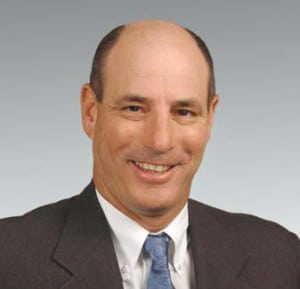Latest News
[Via Satellite 08-13-2014] United Launch Alliance (ULA) president and CEO Michael Gass is stepping down from his leadership position effective immediately. Tory Bruno, formerly Lockheed Martin’s vice president and general manager of strategic missile defense systems, has been appointed as the new CEO. Gass said he will support Bruno for the next several months as he transitions into the new leadership role.
“With my intent to retire in the near term and the changing industry landscape over the next several years, the board of directors and I have agreed that the immediate appointment of my successor to begin the leadership transition is in the best interest of the company,” said Gass.
The decision to retire from ULA came at a difficult time for the joint Boeing-Lockheed Martin venture, which flies both the Atlas and Delta rocket families. The company found itself in the spotlight after SpaceX filed a lawsuit against the United States Air Force over the block purchase of 36 rocket cores for the Evolved Expendable Launch Vehicle (EELV) program. Further complicating the matter, Russia’s annexation of Crimea has resulted in a series of sanctions between the United States and Russia. This potentially jeopardized ULA’s supply of the Russian-built RD-180 engine, which the launcher uses to power the Atlas 5 rocket. Purchases of the engine, which is provided from NPO Energomash through RD Amross, were temporarily banned as a result of the lawsuit and diplomatic tension.
ULA has a very strong track record of launches, with close to 90 missions completed often under short deadlines. In the spring of 2014 the company launched four missions in less than two months, and in July it launched two rockets in four days.
Newcomer SpaceX, despite having a strong launch record itself, has been plagued by delays, which prompted Congress in July 2014 to request an investigation into the repeated “anomalies or mishaps” that have occurred with the Falcon 9.
Gass led ULA for eight years, starting when the joint venture was formed. As a Lockheed Martin employee, he formerly led the Atlas rocket program. Following the transition, Bruno will be ULA’s second CEO.
“Tory [Bruno] understands the launch business as well as anyone and is well-qualified to ensure ULA keeps pace with changing customer needs and launch industry dynamics,” said Craig Cooning, president of Boeing Network and Space Systems and a ULA board member.
Following indications from Russia’s Deputy Prime Minister Dmitry Rogozin, that engine sales might be cut off, ULA began researching alternatives to the RD-180 that will meet the needs of its primary customer, the U.S. government. In June Gass reported that ULA had signed contracts with multiple U.S. companies to create next-generation liquid oxygen/hydrocarbon first stage propulsion concepts. The company is expected to reach a decision by the end of 2014, which would support a first launch by 2019.
“In the past the government told us, ‘we want that redundancy; we want you to maintain it.’ Now they’re saying ‘be competitive, be lower cost,’” George Sowers, VP of strategic architecture for ULA,” told Via Satellite in July.
Congress is also evaluating domestic alternatives to the RD-180. Early estimates peg the cost at $2 billion and eight years for a replacement. ULA’s current supply of RD-180 engines would last until 2017, though the company has said it continues to receive new shipments on schedule.
Get the latest Via Satellite news!
Subscribe Now